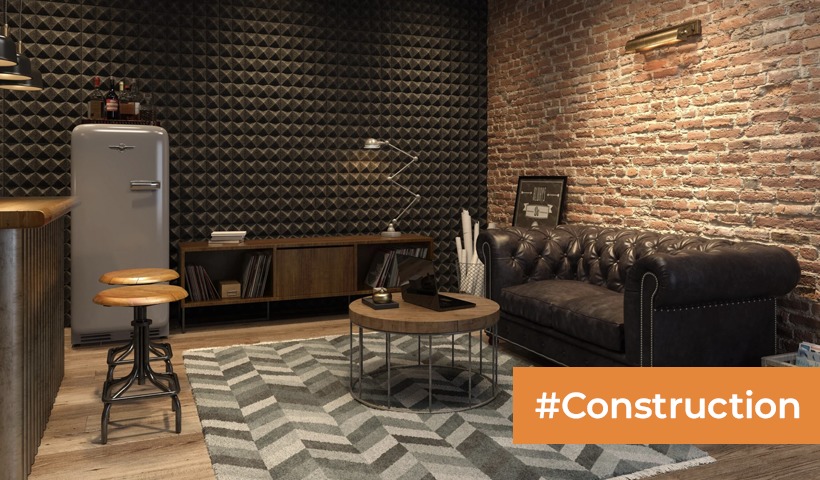From Concept to Consent: Decoding the Building Approval Plan and Its Role in Construction!
Before embarking on any construction project in India, it is essential to obtain the necessary building approvals from the local authorities. The building approval plan is a crucial step in ensuring compliance with regulations, safety standards, and urban planning guidelines. In this blog post, we will explore the meaning of a building approval plan in India, discuss its key inclusions, delve into the factors considered for approval, and emphasize the importance of obtaining proper approvals for construction projects.
- Meaning of Building Approval Plan:
A building approval plan, also known as a sanctioned plan or building permit, is a legal document issued by the local municipal or development authority in India. It serves as official consent for the construction or renovation of a building, indicating that the proposed project complies with relevant regulations, bylaws, and zoning provisions.
- Plan Inclusions:
A building approval plan typically includes the following information:
a) Architectural Drawings: Detailed drawings showcasing the layout, dimensions, and elevation of the proposed building, including floor plans, sections, and elevations.
b) Structural Drawings: Plans illustrating the structural elements of the building, such as columns, beams, slabs, and foundations, along with their dimensions and reinforcement details.
c) Electrical and Plumbing Drawings: Layouts highlighting the electrical and plumbing systems, including the position of electrical fixtures, switches, plumbing lines, and fixtures.
d) Fire Safety Measures: Specifications on fire safety measures, including fire exits, fire extinguishers, fire-resistant materials, and any other requirements as per local regulations.
e) Sanitation and Waste Management: Details on the provision of proper sanitation facilities, sewage disposal systems, rainwater harvesting, and waste management plans.
- Factors Considered for Approval:
Several factors are considered by the authorities when granting building approvals:
a) Zoning Regulations: Compliance with zoning regulations, including land use, setbacks, floor area ratio (FAR), and height restrictions, based on the local development plan.
b) Structural Stability: Assessment of the proposed building’s structural stability, ensuring it can withstand anticipated loads and seismic forces.
c) Safety Standards: Adherence to safety standards, including fire safety measures, escape routes, and accessibility for differently-abled individuals.
d) Environmental Impact: Evaluation of the environmental impact of the project, including adherence to environmental norms, energy efficiency, and sustainable construction practices.
e) Infrastructure Requirements: Consideration of the availability and adequacy of infrastructure such as water supply, drainage, electricity, and road access.
- Importance of Building Approval Plan:
Obtaining a building approval plan is crucial for several reasons:
a) Legal Compliance: Construction without proper approvals can lead to legal consequences, including fines, penalties, and even demolition of the structure. Having a sanctioned plan ensures that the project is in line with legal requirements.
b) Safety Assurance: Building approval plans include safety measures and standards that ensure the well-being of occupants, addressing aspects such as structural stability, fire safety, and sanitation.
c) Quality Control: The approval process ensures that the proposed construction meets quality standards and guidelines, leading to better-built structures and longevity.
d) Risk Mitigation: Compliance with building regulations and approvals minimizes the risk of accidents, structural failures, and environmental hazards.
e) Property Value and Financing: A building with proper approvals generally has higher market value, making it easier to secure financing and attracting potential buyers or tenants.
Conclusion:
The building approval plan plays a vital role in ensuring compliance, safety, and quality in construction projects in India. It encompasses detailed architectural, structural, electrical, and plumbing drawings, reflecting adherence to zoning regulations, safety standards, and environmental considerations. Obtaining proper approvals not only prevents legal complications but also enhances the value and credibility of the property. As responsible stakeholders in the construction industry, it is essential to prioritize the building approval process to create sustainable, safe, and compliant structures in India.
Disclaimer: The views expressed above are for informational purposes only based on industry reports and related news stories. PropertyPistol does not guarantee the accuracy, completeness, or reliability of the information and shall not be held responsible for any action taken based on the published information.





I now know that a building approval plan is a legal document issued by the regional municipal or development authority. It is sometimes referred to as a sanctioned plan or construction permit. Actually, embarking on a construction project for her new business, my friend is actively researching building approval services. She aims to ensure that all necessary permits and regulations are met, facilitating a smooth and compliant construction process that aligns with local regulations and avoids any potential setbacks.
https://pbsaust.com.au/building-approvals-adelaide/